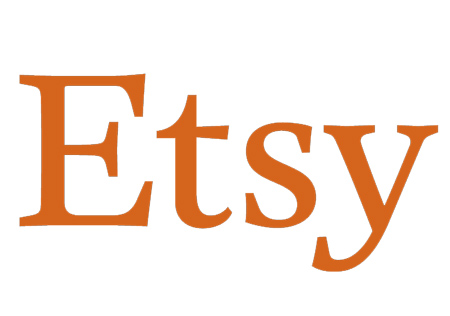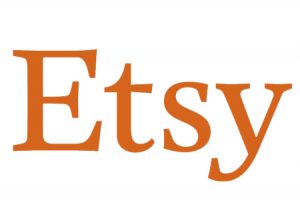
Over and over, there are reports of Etsy sellers being scammed by the same technique. They receive a message in their Etsy inbox telling them they need to verify their account – but unbeknownst to the sellers, the message is not from Etsy. There are slight variations, but the gist of the scam is that the sender of the message uses the Etsy logo as their avatar and tricks sellers into sending them money or providing financial information.
An upset Etsy seller shared her story this evening, writing in part:
“Got a message in my inbox from Etsy (It looked legit), saying I’d made a sale but it couldn’t be processed because I needed to verify my account (Yup I know I’m thick as a bucket load of bricks). My bank Santander wouldn’t verify it so they told me I needed to open a Revolut account and it needed £300 in it. To cut a long story short, I opened it and now I’ve lost £290. They tried again, but thank goodness I’d wised up by then. I’m angry I’ve lost that amount of money obviously, but I’m more sick that I fell for it.”
Clearly there still isn’t enough awareness around the issue. While the seller is mortified that she fell for the scam, she may be helping others avoid falling victim by posting her experience on the Etsy forum.
One of the sellers who responded on the thread warned of another common scam targeting sellers:
“Also for future, many scammers are posing as “Buyers”, stating they need your email for an Order. They don’t, Etsy already has it. When you receive a LEGIT Order, it will appear in “Orders & Shipping” (Left Column of Shop Dashboard); if it isn’t there, you have no Order. Mark the scammer’s Message as Spam (so you don’t get dinged for (Star) Seller). And never click on links or engage with them.”
Standard anti-fraud advice had always been, don’t trust emails purporting to be from marketplaces and don’t click on any links they contain. Instead, sellers were encouraged to sign-in independently to the marketplace and make sure the message appears in their inbox – but now even that alone is not safe.
In August, Etsy acknowledged it had seen an uptick in sellers “sharing examples of communications from individuals claiming to be Etsy Support employees” and shared some tips.
In October, Etsy once again acknowledged the problem and introduced a new “From Etsy” section in Messages designed to make it easier for sellers to identify when they’re receiving an official communication from Etsy or someone on the Etsy team.
We checked in with Etsy last month about scams in, “Are Etsy Sellers Easy Marks for Scammers?” where they offered advice.
Sellers can report cybercrime to the FBI through the ic3.gov website. (Reminder: “The FBI does not send mass e-mails to private citizens about cyber scams, so if you received an e-mail that claims to be from the FBI Director or other top official, it is most likely a scam.”)
As for the seller who posted about her experience on Tuesday evening, she is rethinking her Etsy Shop. She ended her post by writing, “So guys, please be really careful. I’d never received anything like this before I didn’t even realise it was a thing. To be honest, I’m seriously thinking of shutting my shop. It’s just a hobby anyway. I don’t sell much on it. There are some really awful folks out there.”





If I were to get an email from a scammer CLAIMING to be from “Etsy customer service” I would answer it within a heartbeat!
Given how awfully bad Etsbay’s “customer service” has become over the past ten-odd years, you stand a better chance of getting the attention of a scammer than a bona-fide CS representative….
Of course, I’m using hyperbole to make a point; I’d never answer a scammer’s email nor have I ever, I’m proud to say.
Etsy only collects your money. Everything else is on you, it seems. In the same logic as New York’s “broken windows” policing campaign, when scammers see a broken ecom site, they know there’s no oversight that will catch their scams.